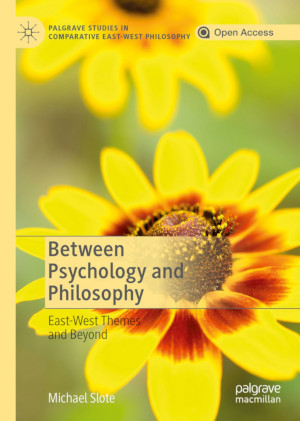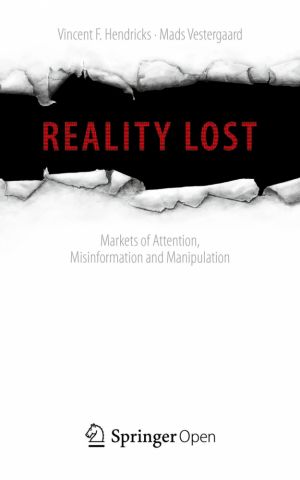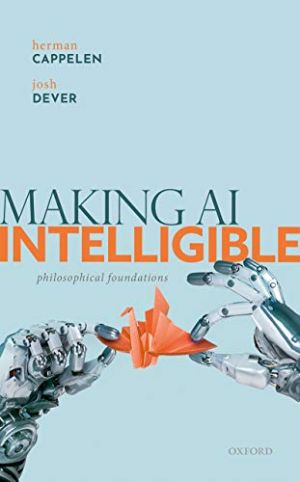
In this bold and original study, Jeff Kochan constructively combines the sociology of scientific knowledge (SSK) with Martin Heidegger's early existential conception of science. Kochan shows convincingly that these apparently quite different approaches to science are, in fact, largely compatible, even mutually reinforcing.
By combining Heid...

The Little Book of Semaphores is a free textbook that introduces the principles of synchronization for concurrent programming.
In most computer science curricula, synchronization is a module in an Operating Systems class. OS textbooks present a standard set of problems with a standard set of solutions, but most students don't get a good und...

This book offers a unique and insightful analysis of Western and Middle Eastern concepts of dignity and illustrates them with examples of everyday life. Dignity in the 21st Century - Middle East and West is unique and insightful for a range of reasons. First, the book is co-authored by scholars from two different cultures (Middle East and West). As...

This book addresses the age-old problem of infinite regresses in epistemology. How can we ever come to know something if knowing requires having good reasons, and reasons can only be good if they are backed by good reasons in turn? The problem has puzzled philosophers ever since antiquity, giving rise to what is often called Agrippa's Trilemma...

This book discusses individual, collective, and institutional responsibilities with regard to vaccination from the perspective of philosophy and public health ethics. It addresses the issue of what it means for a collective to be morally responsible for the realisation of herd immunity and what the implications of collective responsibility are for ...

This book investigates the nature of aesthetic experience and aesthetic objects. Written by leading philosophers, psychologists, literary scholars and semioticians, the book addresses two intertwined issues. The first is related to the phenomenology of aesthetic experience: The understanding of how human beings respond to artworks, how we process l...

This book examines the methodological complications of using complexity science concepts within the social science domain. The opening chapters take the reader on a tour through the development of simulation methodologies in the fields of artificial life and population biology, then demonstrates the growing popularity and relevance of these method...

This book discusses a variety of important but unprecedented ways in which psychology can be useful to philosophy. The early chapters illustrate this theme via comparisons between Chinese and Western philosophy. It is argued that the Chinese notion of a heart-mind is superior to the Western concept of mind, but then, more even-handedly, the relativ...

This book looks at how a democracy can devolve into a post-factual state.The media is being flooded by populist narratives, fake news, conspiracy theories and make-believe. Misinformation is turning into a challenge for all of us, whether politicians, journalists, or citizens. In the age of information, attention is a prime asset and may be convert...

This volume is the first ever collection devoted to the field of proof-theoretic semantics. Contributions address topics including the systematics of introduction and elimination rules and proofs of normalization, the categorial characterization of deductions, the relation between Heyting's and Gentzen's approaches to meaning, knowability...

This book is a multidisciplinary work that investigates the notion of posthumous harm over time. The question what is and when is death, affects how we understand the possibility of posthumous harm and redemption. Whilst it is impossible to hurt the dead, it is possible to harm the wishes, beliefs and memories of persons that once lived. In this wa...

Consciousness is widely perceived as one of the most fundamental, interesting and difficult problems of our time. However, we still know next to nothing about the relationship between consciousness and the brain and we can only speculate about the consciousness of animals and machines.
Human and Machine Consciousness presents a new foundation fo...

By highlighting relations between experimental and theoretical work, this volume explores new ways of addressing one of the central challenges in the study of language and cognition. The articles bring together work by leading scholars and younger researchers in psychology, linguistics and philosophy. An introductory chapter lays out the background...

This book features essays written by philosophers, biologists, ecologists and conservation scientists facing the current biodiversity crisis. Despite increasing communication, accelerating policy and management responses, and notwithstanding improving ecosystem assessment and endangered species knowledge, conserving biodiversity continues to be mor...

This open access monograph argues established democratic norms for freedom of expression should be implemented on the internet. Moderating policies of tech companies as Facebook, Twitter and Google have resulted in posts being removed on an industrial scale. While this moderation is often encouraged by governments - on the pretext that terrorism, b...

Philosophy of Race: An Introduction provides plainly written access to a new subfield that has been in the background of philosophy since Plato and Aristotle. Part I provides an overview of ideas of race and ethnicity in the philosophical canon, egalitarian traditions, race in biology, and race in American and Continental Philosophy. Part II addres...

This open book examines from a variety of perspectives the disappearance of moral content and ethical judgment from the models employed in the formulation of modern economic theory, and some of the papers contain important proposals about how moral judgment could be reintroduced in economic theory. The chapters collected in this volume result from ...

Everything Flows explores the metaphysical thesis that the living world is not made up of substantial particles or things, as has often been supposed, but is rather constituted by processes. The biological domain is organised as an interdependent hierarchy of processes, which are stabilized and actively maintained at different timescales. Even enti...

In 1760, the French playwright Charles Palissot de Montenoy wrote Les Philosophes - a scandalous farcical comedy about a group of opportunistic self-styled philosophers. Les Philosophes emerged in the charged historical context of the pamphlet wars surrounding the publication of Diderot and d'Alembert's Encyclopédie, and delivered an obl...

This original edited volume takes William Blake's aphorism as a basis to explore how British Romantic literature creates its own sense of time. It considers Romantic poetry as embedded in and reflecting on the march of time, regarding it not merely as a reaction to the course of events between the late-eighteenth and mid-nineteenth centuries, ...

Cover songs are a familiar feature of contemporary popular music. Musicians describe their own performances as covers, and audiences use the category to organize their listening and appreciation. However, until now philosophers have not had much to say about them. In A Philosophy of Cover Songs, P.D. Magnus demonstrates that philosophy provides a v...

What does it mean to say that someone is autistic?
Towards an Ethics of Autism is an exploration of this question and many more. In this thoughtful, wide-ranging book, Kristien Hens examines a number of perspectives on autism, including psychiatric, biological, and philosophical, to consider different ways of thinking about autism, as well as it...

Can humans and artificial intelligences share concepts and communicate? Making AI Intelligible shows that philosophical work on the metaphysics of meaning can help answer these questions. Herman Cappelen and Josh Dever use the externalist tradition in philosophy to create models of how AIs and humans can understand each other. In doing so, they ill...

In this rigorous and necessary book, Kristien Hens brings together bioethics and the philosophy of biology to argue that it is ethically necessary for scientific research to include a place for the philosopher. As well as ethical, their role is conceptual: they can improve the quality and coherence of scientific research by ensuring that particular...

Introduction to Philosophy provides an overview of a common range of philosophical topics for a first- or second-year general education philosophy course. It is organized thematically, following the principal categories of academic philosophy (logic, metaphysics, epistemology, theories of value, and history of philosophy). A recurring theme of Intr...
